Top Forex Regulatory Bodies You Need to Know
Abstract:Regulation is crucial while trading to protect your funds. Forex regulation exists to supervise brokers and ensure they comply with strict financial standards. Forex regulatory bodies help traders choose reputable brokers and avoid scams. In this article, we will let you know about the top Forex regulatory bodies worldwide to help protect you from any kind of fraud.
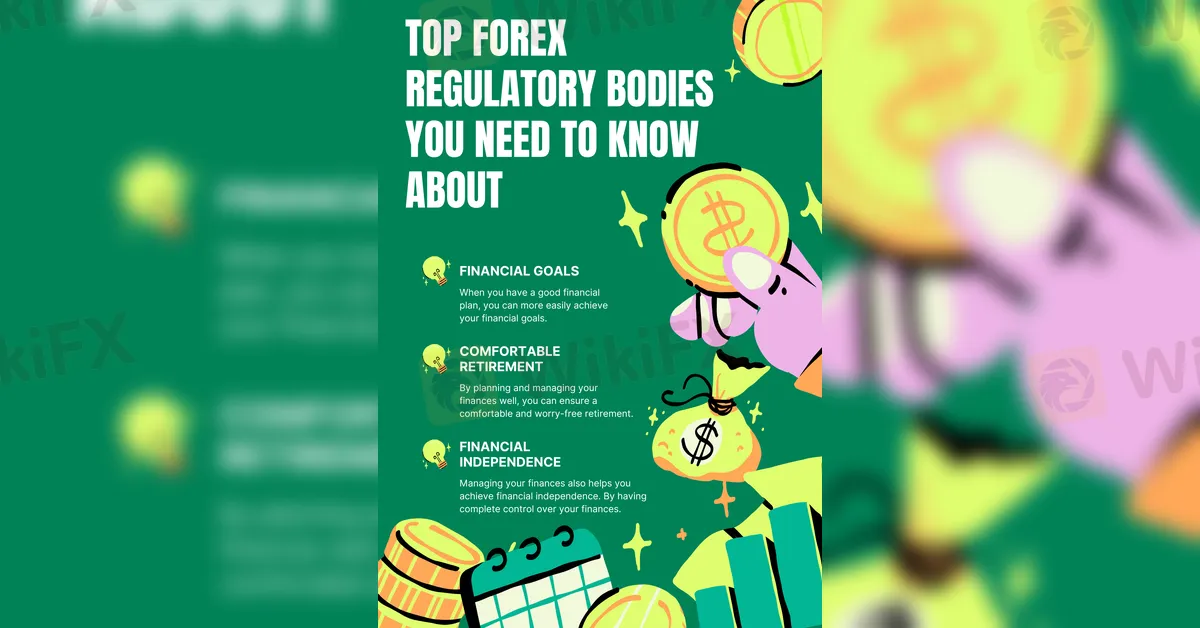
Regulation is crucial while trading to protect your funds. Forex regulation exists to supervise brokers and ensure they comply with strict financial standards. Forex regulatory bodies help traders choose reputable brokers and avoid scams. In this article, we will let you know about the top Forex regulatory bodies worldwide to help protect you from any kind of fraud.
1. What Does 'Forex Regulator' Mean?
A forex regulator typically oversees the licensing of brokers, monitors trading activities, enforces compliance, and protects investor funds. The regulatory standards vary by country, but top forex regulators are usually well-known for their strict enforcement and consumer protection policies.
2. What Is the Role of Forex Regulators?
Forex Marlet or Trading is regulated by government or independent financial authorities around the world. These regulators set rules to maintain transparency, prevent fraud, and ensure brokers act in the best interest of their clients.
3. Top Forex Regulatory Bodies
a. Top Tier 1 Regulators
Tier 1 regulators are the most trusted and reputable authorities in the forex industry. They enforce the highest standards and offer strong protection for traders. Here are some of the top forex regulatory bodies considered Tier 1:
• FCA (Financial Conduct Authority – UK): One of the most respected forex regulators globally. It ensures transparency, client fund segregation, and fair practices.
• ASIC (Australian Securities and Investments Commission – Australia): Known for its strict oversight and robust regulatory framework.
• NFA (National Futures Association – USA): Works under the CFTC and is responsible for regulating forex and futures markets in the United States.
• CySEC (Cyprus Securities and Exchange Commission – Cyprus): While technically in the EU, CySEC has become known for applying MiFID regulations and protecting client interests.
Brokers licensed under these Tier 1 regulators must meet stringent requirements, including capital adequacy, regular audits, and operational transparency.
b. Top Tier 2 Regulators
Tier 2 regulators are reputable but may have slightly less stringent requirements than Tier 1 bodies. However, they still provide a fair level of protection for traders and are widely accepted in the industry. Some examples include:
• FSCA (Financial Sector Conduct Authority – South Africa)
• FSC (Financial Services Commission – Mauritius)
• FSA (Financial Services Authority – Seychelles)
While these regulators are legitimate, traders should always do extra due diligence when dealing with brokers only regulated by Tier 2 authorities.
C. Offshore Regulation
In the world of finance and online trading, offshore regulation is a term that comes up frequently especially when dealing with international brokers.
Offshore Regulation Meaning
So, what exactly does offshore regulation mean? In simple terms, it refers to the regulatory oversight provided by financial authorities located outside the major financial hubs such as the U.S., UK, or EU countries. These offshore jurisdictions often have their own financial regulatory bodies that issue licenses and oversee companies operating within their regions.
Common offshore regulators include:
• FSA (Seychelles)
• FSC (Mauritius)
• VFSC (Vanuatu)
• IFSC (Belize)
Conclusion
In the complex world of forex, regulation is your first line of defense. By choosing brokers regulated by the top forex regulators, you greatly reduce your risk and increase the chances of a secure trading experience. Understanding who regulates forex trading is essential for every trader, whether beginner or experienced.
Read more
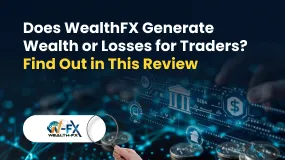
Does WealthFX Generate Wealth or Losses for Traders? Find Out in This Review
The name WealthFX sounds appealing for all those wishing for a rewarding forex journey. However, behind the aspiring name are multiple complaints against the Comoros-based forex broker. These trading complaints dampen the broker’s reputation in the forex community. In this WealthFX review article, we have shared some of these complaints here. Take a look!
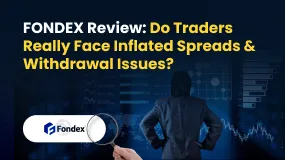
FONDEX Review: Do Traders Really Face Inflated Spreads & Withdrawal Issues?
Does FONDEX charge you spreads more than advertised to cause you trading losses? Does this situation exist even when opening a forex position? Do you witness customer support issues regarding deposits and withdrawals at FONDEX broker? Does the customer support official fail to explain to you the reason behind your fund loss? In this article, we have shared FONDEX trading complaints. Read on!
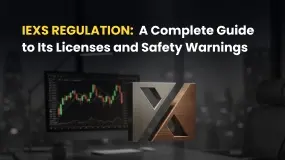
IEXS Regulation: A Complete Guide to Its Licenses and Safety Warnings
When choosing a broker, every trader's biggest concern is safety and trust: is it regulated? For IEXS, the answer isn't simply YES or NO. While the company says it's regulated by trusted authorities, looking closer shows a complicated and worrying situation with mixed evidence and serious risks. What they claim on the surface doesn't match up with official warnings, license problems, and many bad user experiences. This article gives you a detailed, fact-based look into IEXS regulations, breaking down their official licenses, what their trading platform is really like, and real stories from traders who have used it. Our goal is to give you the facts so you can make a smart decision about keeping your money safe.
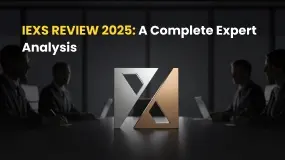
IEXS Review 2025: A Complete Expert Analysis
Choosing the right forex broker requires careful research. IEXS, a broker that has been operating for 5-10 years, shows a mixed picture for traders. The company is based in the UK and claims to serve customers worldwide, offering many different trading options on the popular MT4 platform. However, when we look closely at its licenses and read what users say about it, we find serious problems that potential customers need to know about. This review gives you a complete analysis based on publicly available information, focusing on regulation, trading conditions, how well the platform works, and real experiences from users.
WikiFX Broker
Latest News
150 Years Of Data Destroy Democrat Dogma On Tariffs: Fed Study Finds They Lower, Not Raise, Inflation
The Debt-Reduction Playbook: Can Today's Governments Learn From The Past?
FIBO Group Ltd Review 2025: Find out whether FIBO Group Is Legit or Scam?
Is INGOT Brokers Safe or Scam? Critical 2025 Safety Review & Red Flags
Trillium Financial Broker Exposed: Top Reasons Why Traders are Losing Trust Here
Amillex Withdrawal Problems
IEXS Review 2025: A Complete Expert Analysis
IEXS Regulation: A Complete Guide to Its Licenses and Safety Warnings
Oil and gas giant Wood plc sold to Dubai engineering firm
FONDEX Review: Do Traders Really Face Inflated Spreads & Withdrawal Issues?
Rate Calc

